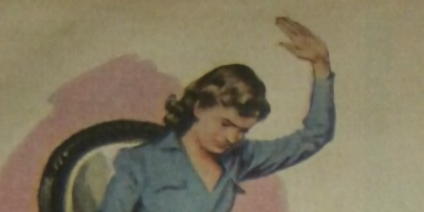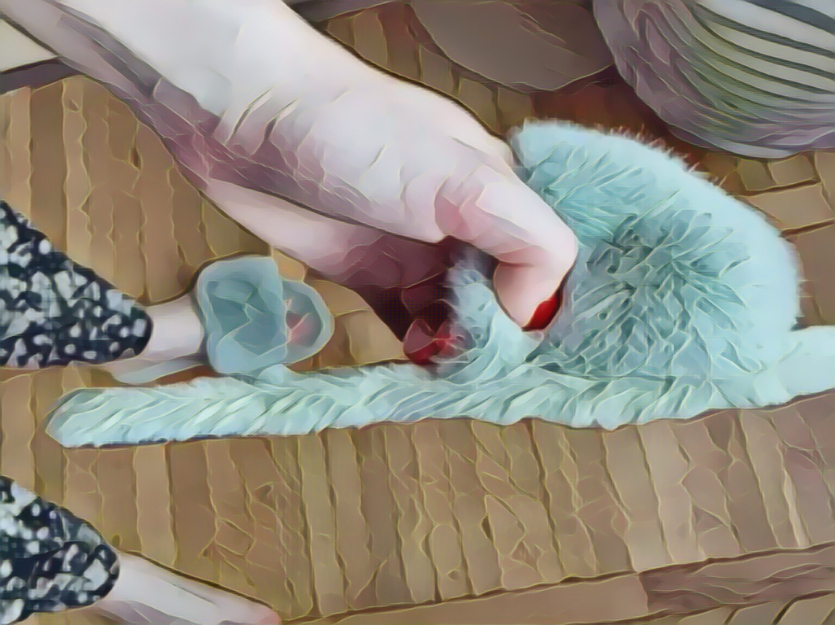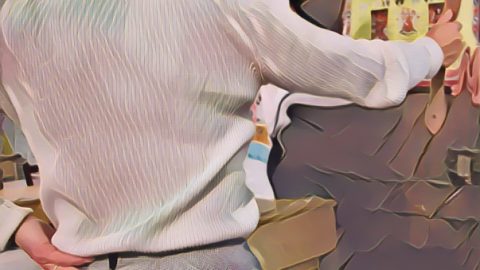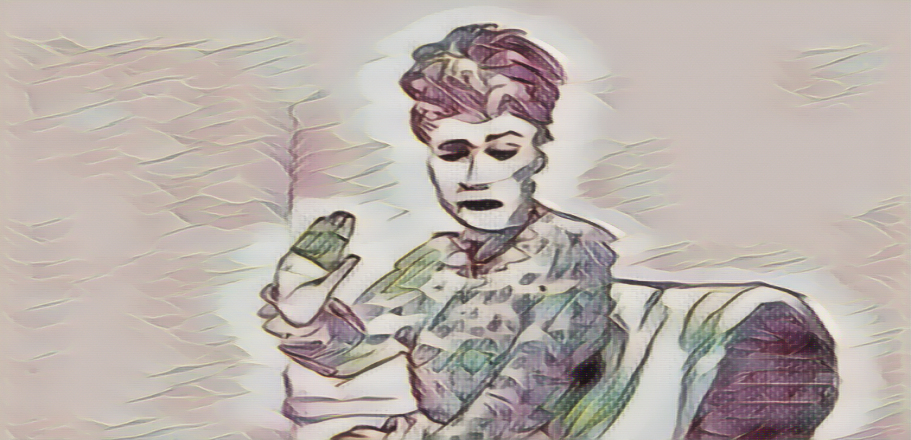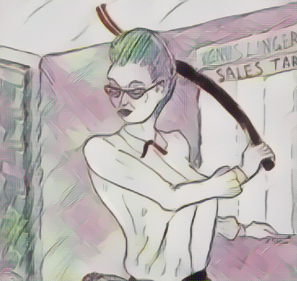(short pause) My grandparents were both smokers, their ashtrays always full, and yet the rules for me were different. My grandmother, in particular, had a way of looking at me that made me squirm with guilt before I’d even been caught. Her discipline was legendary in our family, and the stories of her hairbrush had been passed down like cautionary tales. My mother would warn me, her voice tinged with both fear and respect, that Grandma’s punishments were swift and memorable.
(pause) The hairbrush itself was almost mythical—a heavy, antique thing with a polished walnut handle and a back inlaid with mother-of-pearl. It sat on the dressing table, gleaming softly, a silent reminder of the consequences of misbehavior. I used to run my fingers over the engraved silver plaque, feeling the weight of family history in its cool surface. It was both beautiful and terrifying, a symbol of love wrapped in discipline.
(pause) When I was finally caught—cigarette in hand, the smoke curling lazily in the summer air—my heart dropped into my stomach. My grandmother’s voice was calm but firm as she called me inside. The walk to the living room felt endless, my mind racing with dread and regret. My grandfather sat quietly on the couch, his expression unreadable, while my grandmother waited, the hairbrush already in her hand.
(short pause) I was told to bend over her knee, my cheeks burning with embarrassment and fear. The room seemed to shrink around me, the familiar furniture suddenly looming and strange. My grandfather handed her the hairbrush with a solemn nod, and I caught a flicker of sympathy in his eyes, though he said nothing.
(pause) The first smack landed with a sharp crack, the sting blooming instantly across my skin. I kicked and squirmed, tears springing to my eyes, but my grandmother’s grip was unyielding. (short pause) As the hairbrush rose and fell, her voice rang out, stern and unwavering, each word punctuating the rhythm of the spanking. “Do you know what you’re doing to yourself?” she demanded, her tone both fierce and full of worry. “Every cigarette you smoke is a step closer to addiction. It’s not just a bad habit—it’s a trap. Once it gets its claws in you, it’s nearly impossible to break free.” (short pause) Another sharp smack. “You’re burning your health away, one puff at a time. Your lungs, your heart—do you want to end up coughing and wheezing before you’re even grown?” (pause) She didn’t let up, her words as relentless as the hairbrush. “You think it looks grown-up? There’s nothing grown-up about wasting your money, your future, your life. Every cigarette is like setting your pocket money on fire. Is that what you want? To throw away your chances, just to look cool for a minute?” (short pause) Her voice softened, but the disappointment was unmistakable. “I want you to have a long, healthy life. I want you to be strong, to make good choices. I’m not doing this because I’m angry—I’m doing it because I love you, and I can’t stand the thought of you hurting yourself.” (pause) Each smack was a lesson, each word a plea for me to understand the seriousness of what I’d done. The pain was intense, but her lecture cut even deeper, etching itself into my memory with every stroke.
(pause) The pain was intense, but it was the shame that lingered—the knowledge that I had disappointed the people who cared for me most. When it was over, I was left sobbing, my bottom throbbing, while my grandmother delivered a stern, heartfelt scolding. She spoke of trust, of family, and of the dangers of trying to grow up too fast. Her words cut deeper than the hairbrush, and I listened, chastened and humbled.
(short pause) Afterwards, I was sent to stand in the corner, my face hot with tears and humiliation. The minutes dragged by, each second an eternity as I replayed the incident in my mind. I could hear my grandparents talking quietly behind me, their voices soft and full of concern. Despite the pain, I felt a strange sense of comfort—an understanding that their discipline came from a place of love and worry, not anger.
(pause) That day marked a turning point. I never touched another cigarette at my grandparents’ house, and the memory of the hairbrush—its weight, its sting, its history—stayed with me long after the marks had faded. It became a story I would tell, a lesson etched into my childhood, a reminder of the complicated, sometimes painful, but always loving world in which I grew up.
